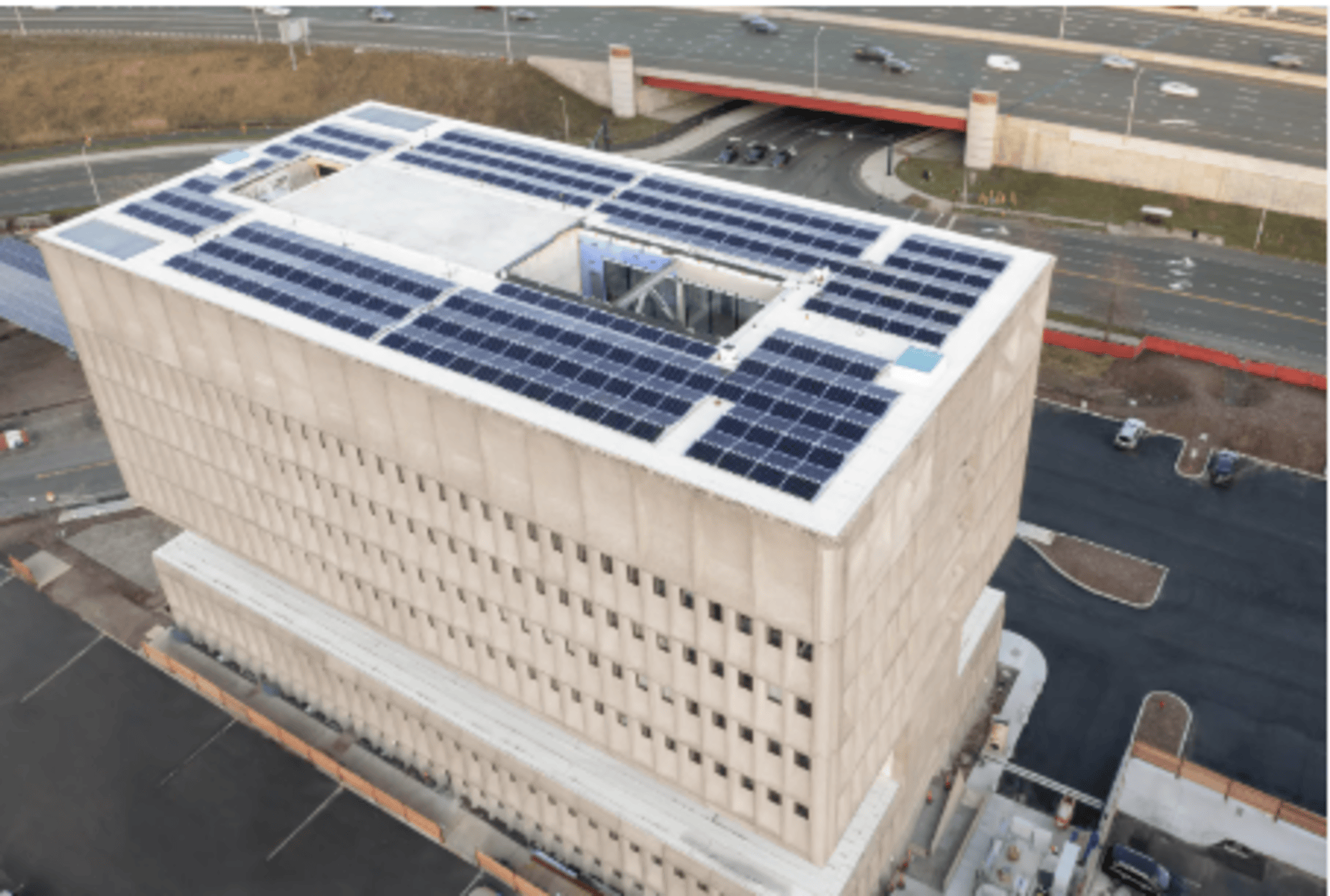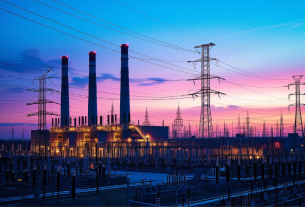In a groundbreaking move towards sustainable development, Hilton’s Hotel Marcel has become the first net-zero energy hotel in the United States, setting a new standard for the hospitality industry. Located in New Haven, Connecticut, this transformation is not just a leap for Hilton, but a significant milestone for the entire hotel industry as it grapples with the pressing need for climate action. With its conversion into a net-zero energy building, Hotel Marcel demonstrates that luxury and sustainability can coexist, reshaping the future of hospitality.
The project represents a bold and innovative approach to the hospitality sector’s environmental impact and has the potential to inspire future green building projects globally. This article explores the unique transformation of Hotel Marcel, its sustainable design features, the challenges overcome, and the potential implications for the broader hotel industry.
A Historic Conversion: From Mid-Century Modern to Net-Zero Pioneer
Hotel Marcel’s journey began with a bold vision for reimagining an iconic mid-century modern building, originally designed in the 1960s by renowned architect Joseph D. Mariani. The building, a former YMCA, was bought by New York-based developer Gary T. Finkel and Hilton’s Curio Collection, which set in motion the ambitious plan to turn it into the first net-zero hotel in the U.S.
The decision to convert Hotel Marcel into a net-zero energy building was based on the growing need for climate-conscious architecture and the desire to significantly reduce the carbon footprint of the hospitality industry. The renovation was a delicate balance between preserving the building’s historic design elements while integrating modern sustainable technologies and energy-efficient systems.
Designing for Sustainability
The renovation of Hotel Marcel was guided by a set of clear sustainability goals that would ensure the hotel operates with minimal environmental impact. These goals were driven by the U.S. Green Building Council’s LEED (Leadership in Energy and Environmental Design) certification and the International Living Future Institute’s Living Building Challenge, which the hotel successfully meets. To achieve net-zero energy, the hotel had to generate as much energy as it consumes, a feat it accomplishes through a combination of solar power, energy-efficient systems, and sustainable building practices.
Here are the key features of the hotel’s sustainable transformation:
- Solar Power: The hotel has installed one of the largest rooftop solar panel arrays in Connecticut. These panels are designed to generate enough energy to meet the hotel’s full operational needs. With over 800 solar panels, the hotel generates roughly 300,000 kilowatt-hours of energy per year, which is sufficient to offset its energy consumption, making it net-zero energy.
- Energy-Efficient Systems: Hotel Marcel utilizes cutting-edge building management systems that optimize heating, cooling, lighting, and ventilation, ensuring that energy use is minimized. The hotel’s HVAC system has been upgraded with geothermal heat pumps that efficiently regulate the temperature throughout the building.
- Insulation and Windows: To reduce energy loss, the hotel incorporated super-insulated windows and high-performance insulation materials that help retain heat during the winter and keep the building cool in the summer. This reduces the need for excessive heating and cooling.
- Water Conservation: Sustainability at Hotel Marcel extends beyond energy. The hotel features water-saving fixtures and low-flow systems to reduce consumption. The design includes rainwater harvesting systems for irrigation, ensuring minimal waste and efficient water use.
- Sustainable Materials: The hotel was built using locally sourced, recycled, and low-impact materials. For example, the flooring includes reclaimed wood, and many of the interior finishes were made from sustainable materials. This approach significantly reduces the hotel’s carbon footprint and environmental impact.
The Economic Case for Net-Zero Hotels
The conversion of Hotel Marcel into a net-zero energy hotel was driven not just by environmental goals but also by economic considerations. The hospitality industry, which is highly energy-intensive, is under increasing pressure to reduce operating costs and carbon emissions. By adopting renewable energy technologies, Hotel Marcel has effectively future-proofed its operations against rising energy costs and changing environmental regulations.
While the upfront investment in sustainable technologies was significant, the long-term financial benefits of operating a net-zero hotel are clear:
- Reduced Operating Costs: By generating its own energy, Hotel Marcel significantly reduces its reliance on the grid, which can lead to substantial savings in electricity costs over time.
- Attracting Eco-Conscious Travelers: As consumers become more environmentally aware, hotels that prioritize sustainability can attract a growing segment of eco-conscious travelers. Hotel Marcel’s green credentials make it an attractive option for guests looking for sustainable accommodations.
- Future-Proofing: As the U.S. and global governments increasingly focus on carbon reduction and energy efficiency, Hotel Marcel is ahead of the curve in meeting future regulatory standards and market demands.
A Model for the Future: Transforming the Hospitality Industry
Hotel Marcel’s transformation offers a blueprint for other hotels looking to implement net-zero energy solutions. The hospitality sector, which is responsible for a significant portion of global energy consumption, must adapt to changing consumer expectations and regulatory pressures on sustainability.
Doval’s focus on net-zero buildings aligns with the hospitality industry’s need to balance growth with environmental responsibility. By leading the way with sustainable design, Hilton’s Hotel Marcel shows that net-zero energy hotels are no longer just a niche market but a viable model for the mainstream industry.
Several global hotel chains and boutique hotels are likely to follow Hilton’s lead, incorporating sustainable design principles into their buildings and renovation projects. Other properties can look to Hotel Marcel for inspiration, whether in terms of energy production, water conservation, or waste reduction. Hotels that embrace these sustainable practices not only align themselves with global climate goals but also enhance their brand value by appealing to a more eco-conscious consumer base.
Challenges and the Road Ahead
While Hotel Marcel’s success in achieving net-zero energy is a remarkable accomplishment, it was not without its challenges. The renovation required significant coordination between architects, engineers, and sustainability experts to meet the stringent energy efficiency standards. The project also faced challenges related to retrofitting an older building, as integrating modern energy systems into historic structures often requires creative solutions and compromises.
However, the successful conversion of Hotel Marcel proves that achieving net-zero energy is possible, even for older buildings, and it paves the way for the future of sustainable hospitality. As the industry moves toward sustainability, more properties are likely to adopt similar technologies and strategies, contributing to the global effort to combat climate change.
Conclusion: A Green Future for Hospitality
Hilton’s Hotel Marcel marks a turning point for the hospitality industry, proving that sustainability and luxury are not mutually exclusive. By converting an iconic building into the United States’ first net-zero energy hotel, Hilton has set a powerful example of how hotels can reduce their environmental impact while offering guests a high-quality, comfortable experience.
As more hotels embrace sustainable practices and energy-efficient technologies, the hospitality industry will play an increasingly important role in the fight against climate change. Hotel Marcel’s net-zero transformation shows that with innovation, vision, and commitment to sustainability, the future of hospitality can be both environmentally responsible and economically viable.
References:
- Hilton News: “Hotel Marcel: America’s First Net-Zero Energy Hotel.” Hilton
- Curbed: “Hotel Marcel and its Net-Zero Transformation.” Curbed
- U.S. Green Building Council: “Hotel Marcel Achieves LEED Platinum Certification.” USGBC
- International Living Future Institute: “Living Building Challenge: Hotel Marcel.” ILFI
This article explores how Hilton’s Hotel Marcel has become a leader in sustainable hospitality, offering a model for how the industry can transition to greener, more sustainable practices.

